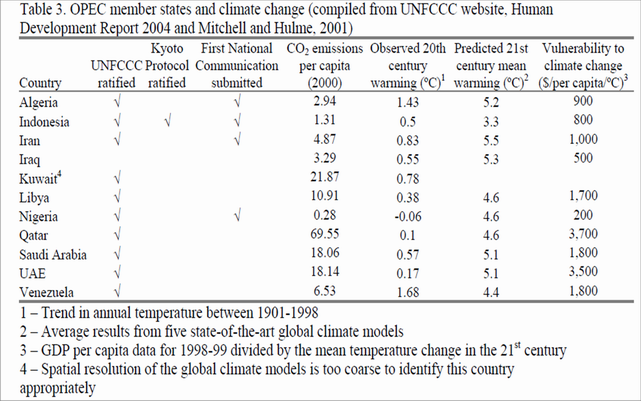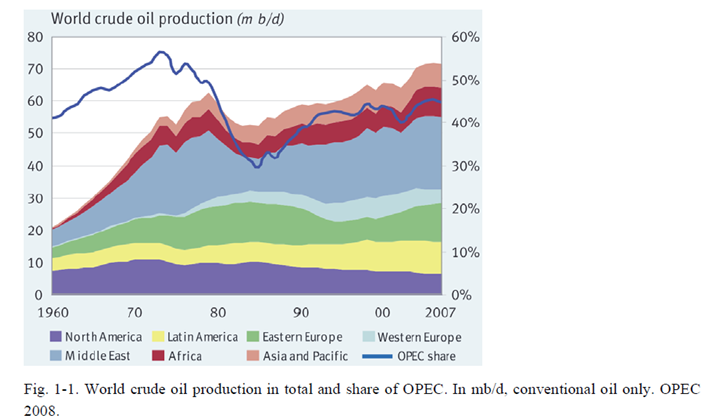Difference between revisions of "OPEC"
| Line 26: | Line 26: | ||
=Other information= | =Other information= | ||
1. OPEC[http://www.opec.org/opec_web/en/index.htm] | 1. OPEC[http://www.opec.org/opec_web/en/index.htm]<br> | ||
2. Annex I and Annex II countries[http://en.wikipedia.org/wiki/United_Nations_Framework_Convention_on_Climate_Change#Annex_I_countries]<br><br> | 2. Annex I and Annex II countries[http://en.wikipedia.org/wiki/United_Nations_Framework_Convention_on_Climate_Change#Annex_I_countries]<br><br> | ||
Revision as of 12:03, 22 August 2010
background
1. OPEC's role in G77 has been simultaneously positive and negative: positive in so far as it brings
to G77 a large team of experienced lawyers and negotiators; negative in so far as OPEC is largely
concerned with the impact of climate policies on their oil export and revenues rather than in
reducing greenhouse gas emissions or in developing policies and measures to facilitate
adaptation.OPEC and in particular Saudi Arabia have close associations with the oil industry, in
particular US companies. This has led them to oppose greenhouse gas reductions, disrupt the
whole negotiation process[1]
2.In 1976,
OPEC member countries established the OPEC Fund for International Development, a
multilateral development finance institution aimed at promoting cooperation between OPEC and
other developing countries, in particular the least developed countries (LDCs). It does this mainly
by providing financial resources to assist the latter group of countries in their economic and social
advancement.
3.In 2003, OPEC countries accounted for 77% of proved oil reserves in the world and roughly 40% of its production.
4.Overall OPEC has become
more dependent with an average of 27% of GDP coming from oil exports.
5. 
OPEC annual statistic report 2009
6. OPEC in the UNFCCC:
Representatives of these countries consequently emphasized the
scientific uncertainty about climate change and the flaws in existing economic analysis. They
went to great lengths to minimise any specific commitments to emissions reductions, avoid any
reference to energy and generally to delay the conclusion of an agreement.
7. 
8.
In general,the influence of OPEC will still grow since other countries' oil production capacities will decrease in the future. However, the oil comsuption is increasing in the recent years, and this the increaseing comsuption trend will affect the oil export amount of OPEC.[2]